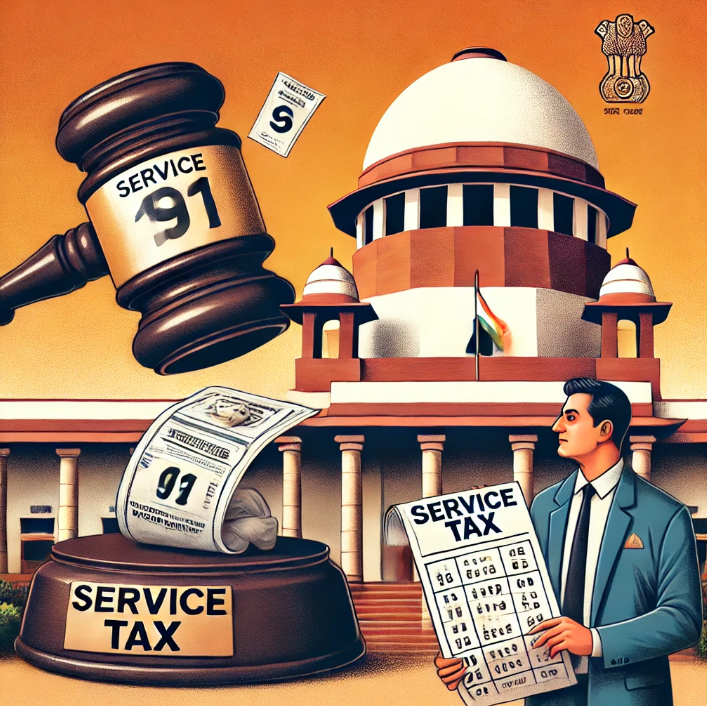Shreya Gupta
On 11th February 2025, the Supreme Court of India provided significant relief to lottery firms, including Future Gaming and Hotel Services Pvt. Ltd., by ruling that lottery distributors are not liable to pay service tax for organizing lotteries. The apex court upheld a decision by the Sikkim High Court, which had struck down a 2010 law that sought to impose service tax on activities such as promoting and organizing lotteries. A bench consisting of Justices B.V. Nagarathna and N. Kotiswar Singh ruled that lotteries fall under the category of “betting and gambling,” which, according to the Indian Constitution, falls exclusively under the taxation authority of state governments.
By dismissing the Union Government’s appeal, the Supreme Court reaffirmed that the Centre cannot impose service tax on these activities. Justice Nagarathna, while reading out the judgment, clarified that since there is no agency involved, no service is rendered by lottery distributors to the Government of Sikkim. As a result, service tax cannot be levied on transactions between lottery ticket purchasers and the Government of Sikkim.
However, the Supreme Court also clarified that lottery companies remain liable to pay the gambling tax imposed by state governments under Entry 62 of the State List. The ruling was based on constitutional provisions that divide taxation powers between the Centre and the states. Entry 62 of the State List grants states the power to tax betting and gambling, including lotteries, while Entry 34 of the same list gives states the authority to regulate such activities. The Centre attempted to impose service tax on lottery distributors by invoking Entry 97 of the Union List, which allows Parliament to impose taxes on matters not explicitly covered under the Constitution. The Supreme Court, however, rejected the Centre’s claims, stating that betting and gambling are already covered under the State List, thereby confirming that only states have the power to impose taxes on lotteries.
The dispute originated in 2010 when the Indian Parliament amended the Finance Act, 1994, by adding Clause (zzzzn) to Section 65(105). This amendment classified activities such as the promotion, marketing, and organization of lotteries as taxable services, thereby subjecting lottery distributors to service tax. Lottery firms, including Future Gaming and Hotel Services Pvt. Ltd., which sell both paper and online lottery tickets organized by the Government of Sikkim, challenged this amendment in the Sikkim High Court. They contended that their activities did not fall under “taxable service” and that conducting lotteries qualifies as “betting and gambling,” which, as per Entry 62 of the State List, falls exclusively under the jurisdiction of state governments. They also argued that Parliament cannot impose taxes on state subjects by invoking Entry 97 of the Union List.
On November 29, 2012, the Sikkim High Court ruled in favor of the lottery firms, striking down Clause (zzzzn) to section 65 of the Finance Act, 2010. The High Court held that lottery distributors do not provide a taxable service and, therefore, cannot be subjected to service tax. It further reaffirmed that betting and gambling are matters under the exclusive jurisdiction of state governments, meaning that only states can impose taxes on such activities. The Union Government later challenged this ruling before the Supreme Court, but the appeal was dismissed.
The Supreme Court’s decision aligns with another 2024 ruling, which determined that the sale of lottery tickets by a state government does not constitute a taxable service but is instead an activity aimed at generating additional revenue. The court also observed that wholesale lottery purchasers are not engaged in promoting or marketing any service provided by the state, thereby making them ineligible for service tax liability.
Case Title: Union Of India And Ors. v. Future Gaming Solutions Pvt. Ltd. And Anr.
Case Number: C.A. No. 4289-4290/2013
Bench: Justices B.V. Nagarathna and N. Kotiswar Singh
Click here to access the order/ Judgment
Instagram: Click here.
LinkedIn: Click here.
For Collaboration and Business: info.desikaanoon@gmail.com

